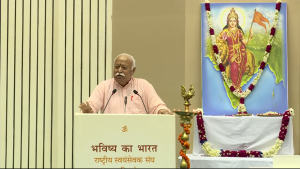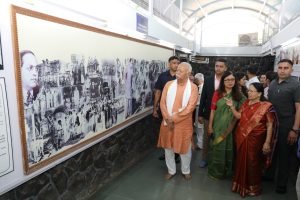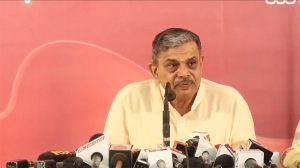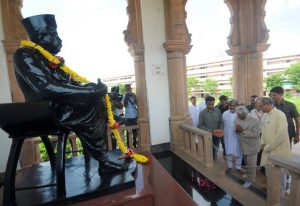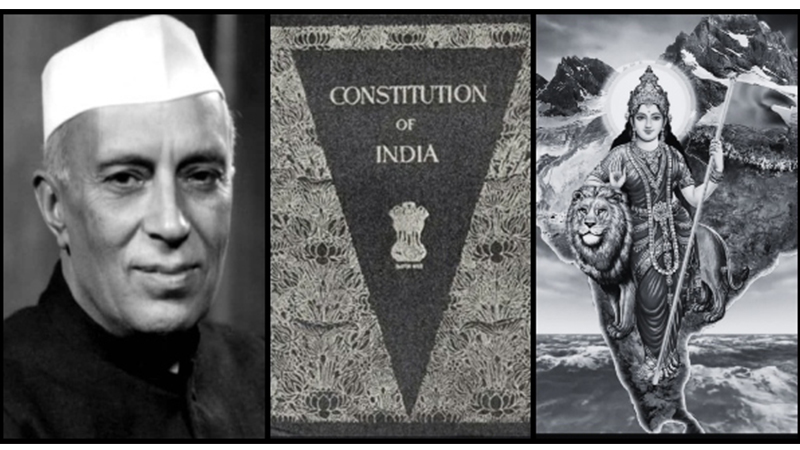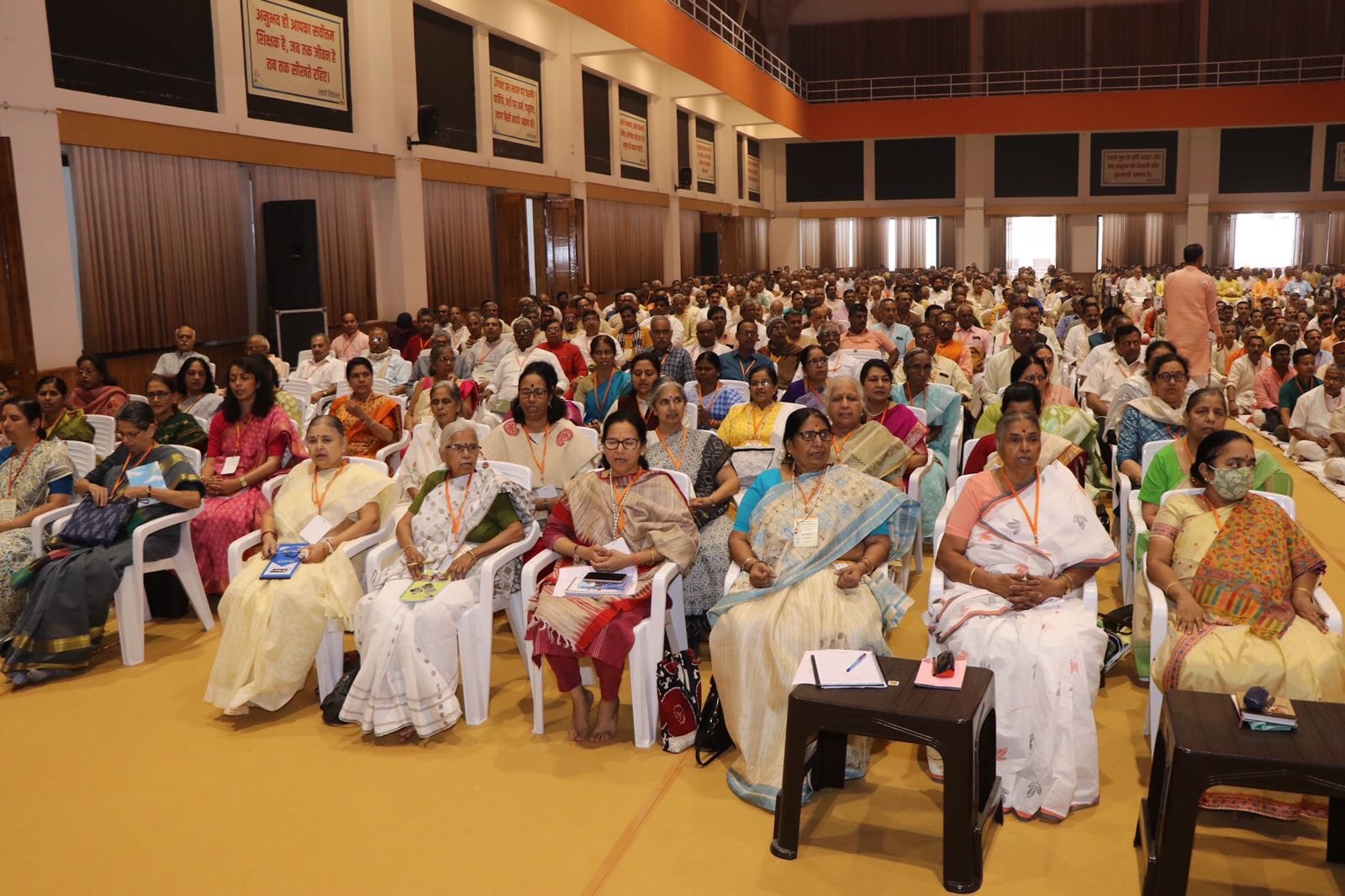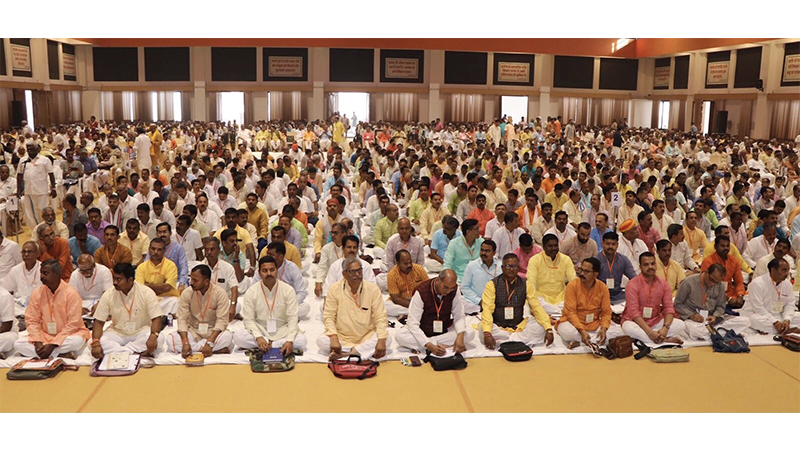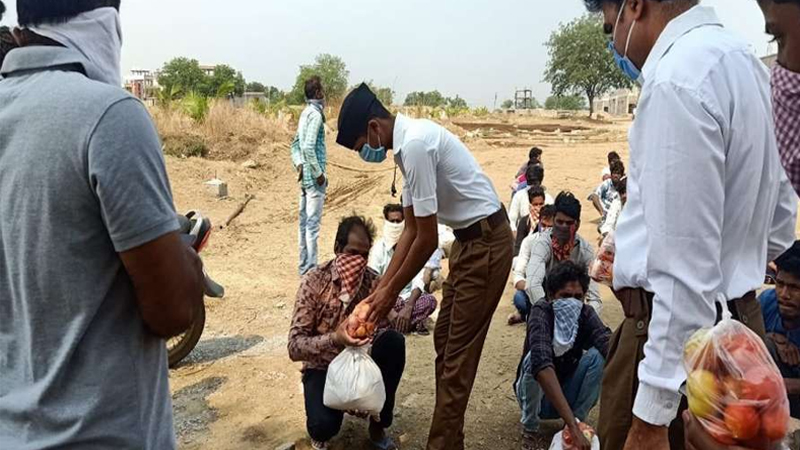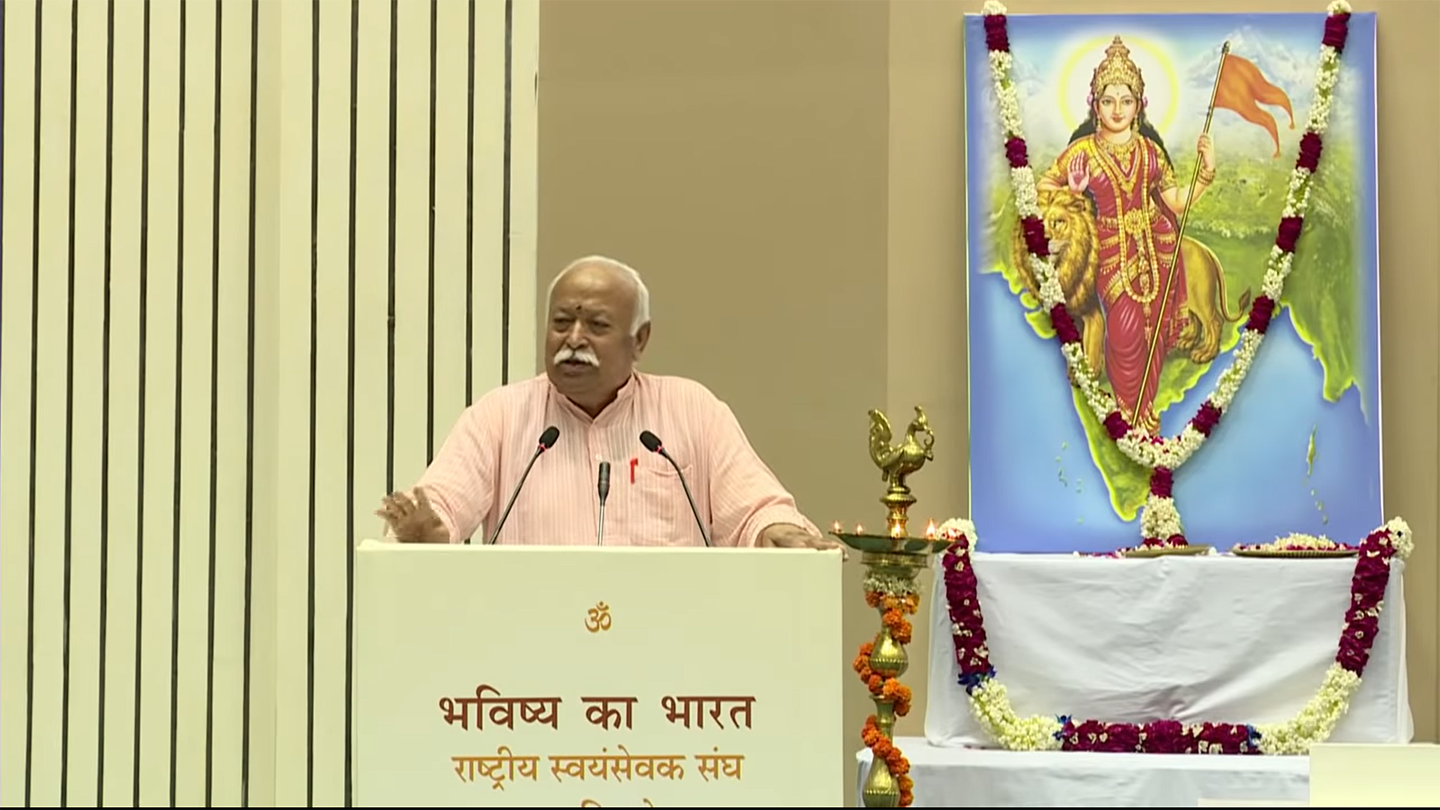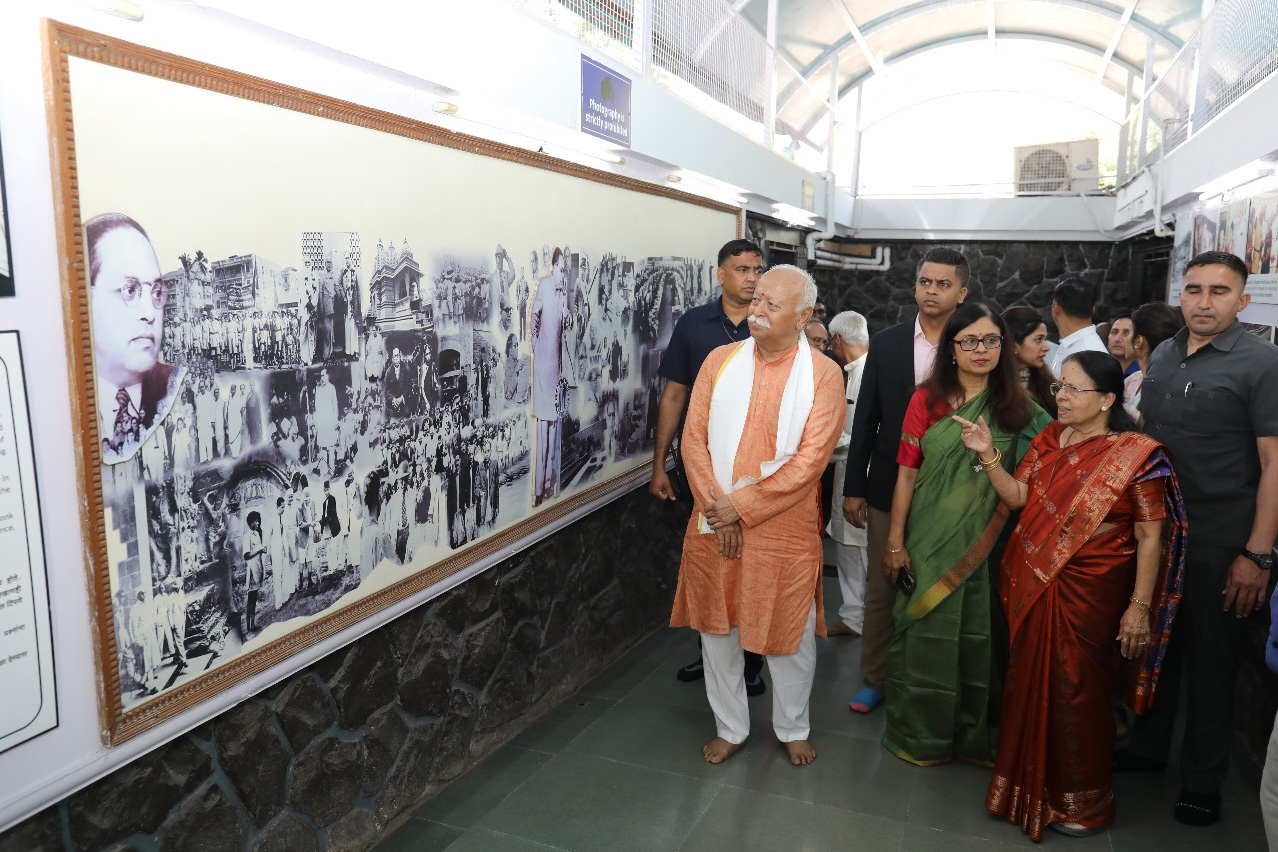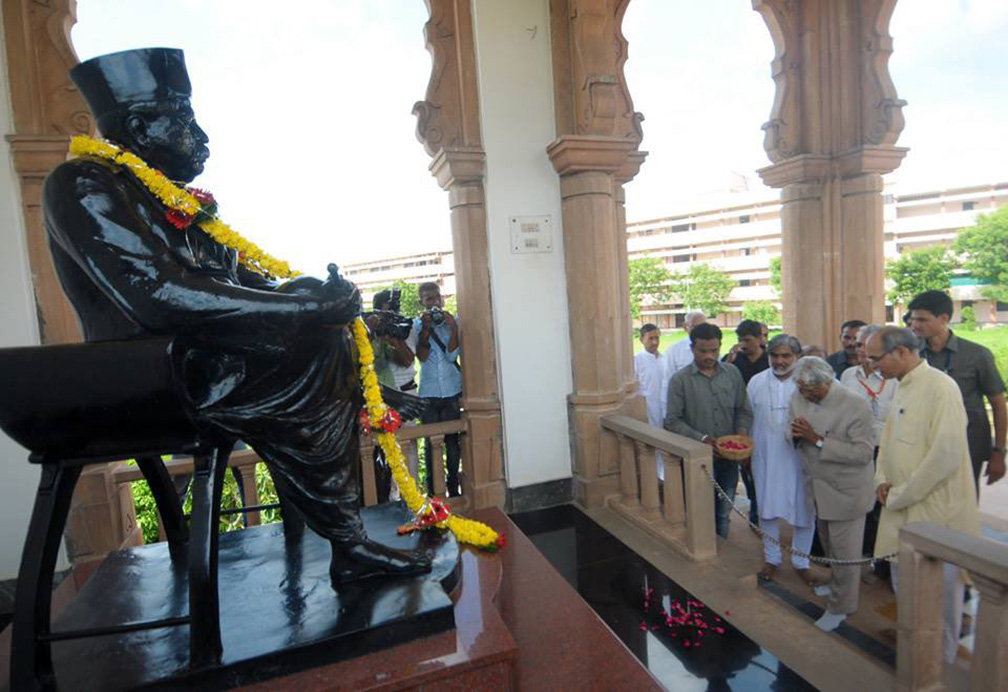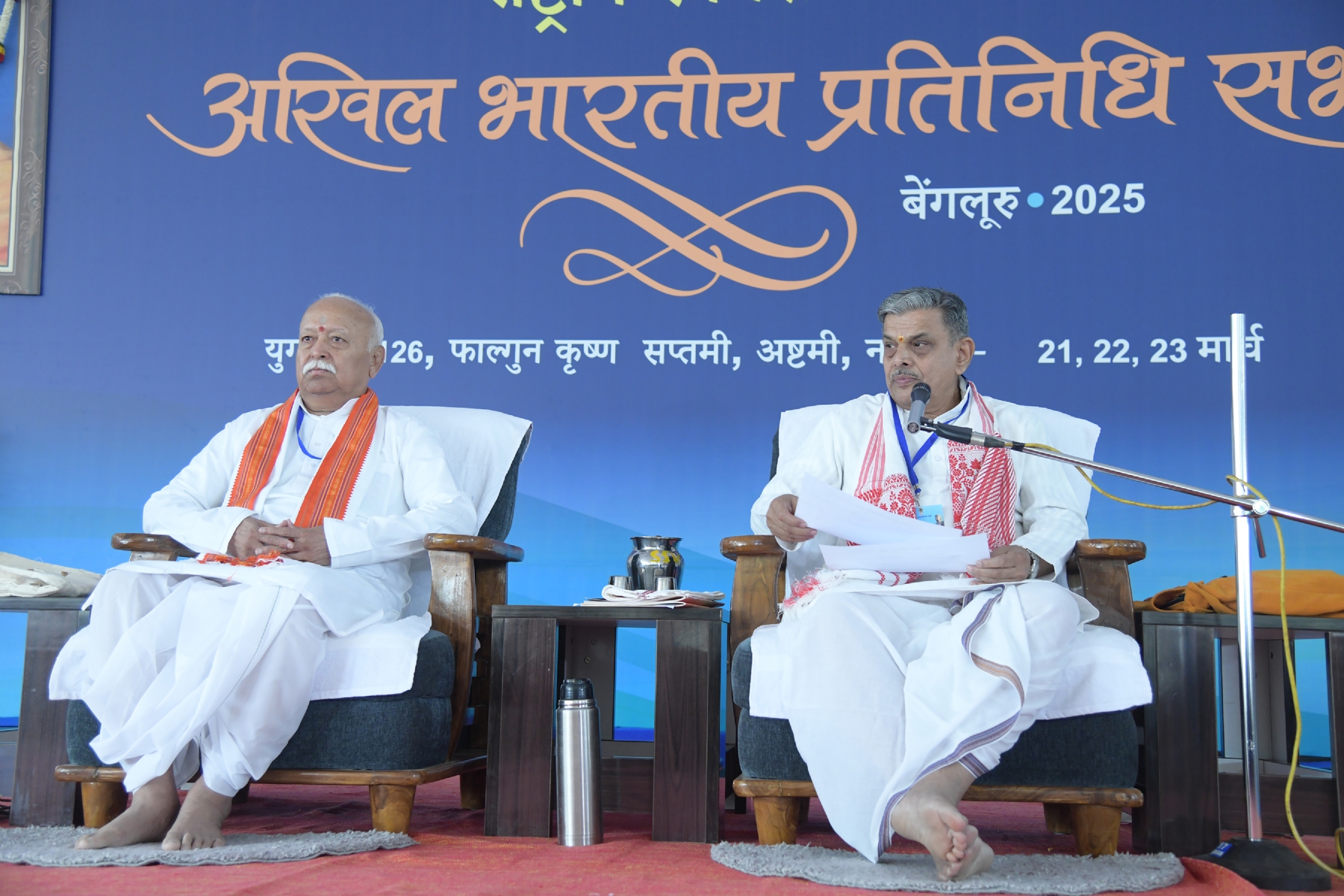Excerpts from MG Vaidya’s ‘Understanding RSS’
Updated: August 19, 2023 10:40

MG Vaidya was an ideologue of Rashtriya Swayamsevak Sangh (RSS). He had passed away in 2020 at the age of 97. He was one of the oldest RSS volunteer who had witnessed tenure of all the six Sarsanghchalaks(Chief Mentors) of the RSS. He had headed RSS’ intellectual wing as ‘Akhil Bharatiya Boudhik Pramukh’(All India head of intellectual cell). He was a prolific writer and also donned the responsibility of the RSS’ spokesperson. We are sharing here excerpts from his book ‘Understanding RSS’ where Vaidya talked about the founder of the RSS Dr. Keshav Baliram Hedgewar. This book was first published in 2015 by New Delhi based publishing house Vichar Vinimay Prakashan. The excerpts have been taken from pages 12, 13, 14, 15, 17, 18.
Excerpts:
From being a Congress Leader to Creator of RSS :A vision for an organised, devoted and spirited Bharatiyas
In 1916, Keshav Hedgewar returned to Nagpur as Dr. Keshav Hedgewar. However, he neither established a practice nor got married and started a family. He did not return to Kolkata because the First World War was taking place in Europe then. England was fully embroiled in the war. The revolutionaries were planning to take full advantage of this scenario and wanted to add more fuel to the fire. These plans did not succeed. The war came to an end in 1918, with England emerging victorious. England became more powerful, and it was almost impossible to wage an armed revolution against the British Empire. One thing became clear; it was impossible to free a big country like Hindustan from the clutches of the British by sacrificing a few lives. To attain freedom, it was inevitable to awakening the national consciousness of the entire people. At that time, Congress was the only political organisation in the country. It was established to fight for a few rights of the people of Bharat from the British Government through appeals and representations. In Congress sessions, resolutions supporting the British Government were invariably passed first before the resolutions demanding people’s rights were moved.
Lokmanya Tilak brought about a radical change in the Congress ideology. He proclaimed that the country wanted complete independence and not merely certain rights. He coined the slogan: ‘Independence is my birthright’. This slogan radically altered the atmosphere in the Congress and gave a fresh lease of enthusiasm to the people. However, this also led to a split in the Congress into two groups. One group was called moderates while the other, extremists. In Congress, the moderate’s group had more members than the extremists. Their politics was in support of the British Government. The general public was attracted towards the extremists group. Lokmanya Tilak was rightfully respected and was well-known for his political views. The British Government could not digest the public love for Tilak. It filed a case against Tilak, citing some of the articles written by him in the newspapers. He was imprisoned for 6 years and sent to Mandalay prison in Brahmadesh (Myanmar). He was released from the jail in 1914. During those 6 years, the politics of extremists had cooled down a lot. Lokmanya Tilak restarted his work with the chanting of yet another slogan, ‘Punashcha Hari Om’. He received a lot of support from the youth of the nation and Dr. Hedgewar from Nagpur was one of his chief supporters. Eventually, Dr. Hedgewar became a Congress leader.
There was a group called ‘Rashtriya Mandal’ in Nagpur, and Dr. Moonje and Barrister Abhyankar were its members. Dr. Hedgewar enrolled himself into this group and was its youngest member. It was decided to hold a Congress session at Nagpur in December 1920. Dr. Hedgewar was given the responsibility of planning for this session. Members of Rashtriya Mandal wanted Lokmanya Tilak to become the President of Congress. Their wish might have come true but for the unfortunate and quite unexpected death of Lokmanya Tilak on August 1st, 1920. The leadership baton of Congress was thus passed on to Mahatma Gandhi.
The entire nation got drawn towards Congress because of its two successful agenda: Non-cooperation to British Government and the call to use of Swadeshi goods. Doctorji also plunged himself into these programmes. He travelled from one village to another, making speeches to ignite the spark of independence (Swaraj) in the minds of people. The British Government was annoyed with the speeches of Doctorji and charged him with treason. He was punished with one year of imprisonment. He was released from prison on July 12th, 1922.
Though Doctorji participated in Gandhiji’s Non-cooperation and Swadeshi movements, he was not in agreement with Gandhiji’s policy on Muslims. When Mahatmaji started insisting on HinduMuslim unity for securing independence, Doctorji voiced his objections to Mahatmaji. He expressed that India was a land of multiple religions – Hindus, Muslims, Christians, Parsis and Jews and asked Mahatmaji as to why he was talking only about unity among the first two. He also brought home the fact that even before coining of the phrase ‘Hindu-Muslim unity’, many Muslims had joined Congress and were taking part in the Independence struggle. Mahatmaji replied that by talking about Hindu-Muslim unity, he was building love and affection in the minds of Muslims for the nation. Doctorji was not convinced by this reply, and yet he continued to work for Congress.
Mahatmaji started a movement all across the nation to mobilise support for re-establishing the Khaliphate. This was called as Khilafat movement. The Khilafat movement was a flop because Muslims in Turkey themselves did not like the Khalipha. The failure of this movement had an undesirable effect in our country. Hindustani Muslims felt closer to a different country. Muslim orthodoxy got emboldened to such an extent that Muslims started attacking Hindus to avenge the failure of Khilafat movement. The Mooplah rebellion in Kerala was one such horrifying example. During this barbarous campaign of bigotry, Muslims killed more than 1500 Hindus and forcefully converted more than 20,000 Hindus to Islam. Numerous ladies committed suicide by jumping into the wells to protect themselves from getting raped.
After seeing the bitter results of Congress’s Muslim appeasement policy. Dr. Hedgewar started thinking on a new line.
The country had to obtain independence. Doctorji felt that this could not be possible only with the stand-alone violent protests of revolutionaries. So, he did not continue with those activities. Congress was creating awareness in the general public about the importance of freedom. Doctorji felt that this awareness was important but not enough. He strongly felt that there must be a complete uprising against the British Government. A conscious society creates fellowship, and it helps. When it comes to the actual fighting for the rights on the street, only a very few come forward and not the entire society. This is the case with any Independence movement. Only some have ‘fighting for independence’ as their goal of life. They lead a disciplined life and aren’t afraid of making any sacrifice or even embracing death. The society at large stands bv them with a sympathetic view to help them in all circumstances. This is the pre-condition to win the fight for independence.
Due to the efforts of Congress, there was awareness in the society, but the society did not feel a strong kinship with the martyrs who led the protests from the front. Gandhiji did not have the time to establish that relationship. This was the main reason for the failure of the ‘Quit India’ movement, in 1942. When Netaji Subhash Chandra Bose’s army reached the frontiers, the entire nation had lost the vigour to fight against the British. It was the time for a nationwide revolution, but the leaders were in jail and were thinking about modes of getting out. (I have presented the scenario available in 1942 after Doctorji’s death, so as to enable the readers to get an insight into his thought process.) Doctorji was deeply pondering over yet another issue – A handful of British had come traversing thousands of miles to Bharat without any army. They had come only with weighing scales to do trade; but yet they managed to win the entire nation. What a big surprise? Who won this nation for them? Doctorji understood that we ourselves only had enabled them to win our nation. We had become soldiers in their army. We had also become their officers and administrators.
Doctorji was thinking about these issues for quite some time. These thoughts were disturbing him a lot, which ultimately led him to focus on one thought – getting organised is a must for the society. There should be an organisation of those who love the nation. He felt that all the people should realize their identity, become aware of the actual friends/foe, and remember all this forever. An organisation doesn’t mean just the aggregate of people or a big crowd. We can see such crowds in a fair or a carnival. Even in a market, many people come together. An organisation means coming together of devoted people with specific ideas and a common behavior. But who could infuse the people with such a spirit?
Naturally, there are two places where value-based learning is possible-one, in one’s own home and another, in the school. Values were taught at home but they were restricted to the family level; it does not assume a social or national dimension. Schools were just centres that fed information for the purpose of passing the exams. These trends continue even today. Hence Doctorji felt the need to adopt a completely different system. Rashtriya Swayamsewak Sangh and its method of working were products of this thought process of Doctorji. Once he decided this, Doctorji relieved himself of all other social responsibilities. He was holding a position in Congress, and he could have attained higher positions had he continued there. However, Doctorji never allowed himself to fall a victim to that temptation.
